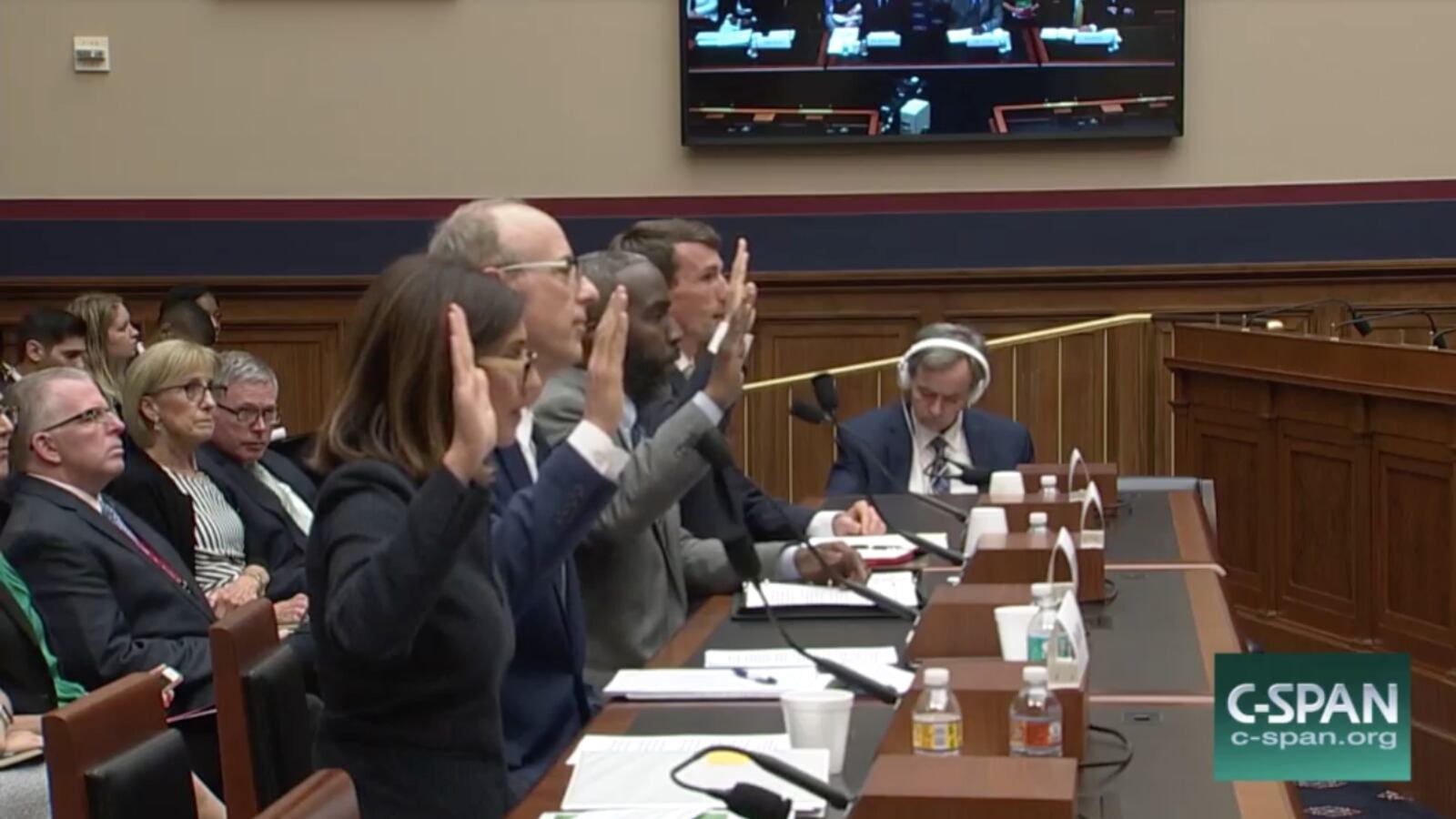Charter schools got some extra attention in Washington, D.C. today in the form of a U.S. House hearing.
The title of the hearing (“The Power of Charter Schools”) and the selection of witnesses (three of the four spoke highly of charters) made clear that the intent was to frame the discussion positively.
“For many, charter schools are the best option for their student to hone his or her individual abilities and build a successful life,” chairwoman Virginia Foxx, a North Carolina Republican, said in her opening comments.
But lawmakers also raised pointed questions about the schools’ transparency and effectiveness, as well as the role of virtual schools.
Here are four key questions raised at the hearing.
What should be done about struggling virtual charter schools?
Rep. Suzanne Bonamici, an Oregon Democrat, highlighted recent problems with virtual charter schools, pointing to Indiana Virtual School, which she noted “graduated a lower percentage of students than almost any other school in the state,” and the abrupt closure of a large virtual school in Ohio. She also pointed to Chalkbeat’s reporting on debates about oversight of virtual charters in Indiana.
Nina Rees, the president of the National Alliance for Public Charter Schools, acknowledged what a report by her organization called “the chronic underachievement of online charter schools.”
But, she said, “You don’t want to completely get rid of them because for some students these are the only choices available to them.”
Should charter schools be subject to open records laws?
In some states, charter schools don’t have to turn over documents or records the way government entities do.
In New York, for instance, charter schools themselves must follow state records laws, but the network organizations that charters often work closely with, like Success Academy, are not compelled by those laws. In DC, the charter authorizing board is subject to public records, but individual schools aren’t.
“Should any public charter school be subject to the same open records law as a non-charter school?” Rep. Bobby Scott, the committee’s ranking Democrat, asked the witnesses.
Jonathon Clark, a Detroit parent who is largely skeptical of charters, said yes. Rees was less definitive.
“We need to take a close look at the consequence of these additional rules and regulations on charter schools, but by and large my reaction is yes, they should be able to make this information available,” she said.
Which city’s charter model is better — Detroit’s or Denver’s?
Both cities were repeatedly highlighted, but for different reasons.
“Michigan’s lax charter authorization system has allowed schools to promise things and not deliver them, and to continue to take taxpayer money without providing Michigan’s — and, in particular, Detroit’s — students a quality education,” said Clark, who is on the board of the a city community group, 482Forward.
Rep. Scott also pointed to Detroit as an example of charter schools gone wrong, while highlighting Denver as a positive example.
In some ways, the cities are perfect foils. Denver has embraced what is called the “portfolio model,” where charters are tightly overseen based on academic results; the city school board authorizes charters; and some charter advocates say the board hasn’t allowed charters to grow quickly enough. Detroit has a more free-market approach with a number of authorizers, including universities, able to grant a charter; and an effort to create a portfolio style model was beat back by Republican lawmakers, with the backing of Betsy DeVos before she was secretary of education.
According to CREDO, in both cities charters modestly outperform comparable district schools — and in both cities the growth of charters remains politically contentious.
What does the CREDO research on charters really say?
During the hearing, people on both sides of the issue cited research out of CREDO, a Stanford-based research group that has conducted the most comprehensive research on charter schools.
In his opening remarks, Rep. Scott highlighted a 2009 CREDO report showing that just 17 percent of charter schools outperformed traditional public schools, but 37 percent did worse. “I used to say that on average, charter schools are average; this recent research is showing that on average charter schools are below average,” he said.
This study is not in fact recent, and a 2013 national CREDO study showed charter schools performed about the same as district schools.
Harvard professor Marty West acknowledged that in his testimony. But “dismissing the charter sector’s track record as mixed ignores clear evidence of benefits for students from low-income families, students of color, and students living in urban areas,” he said, pointing to a 2015 CREDO report on charters in cities and 2017 one on networks of charter schools, among other studies.
Later in the hearing, yet another CREDO analysis was highlighted by Rep. Bonamici, this time on virtual charter schools. This study showed substantial drops in test scores when students attended one of these schools.
Keep in mind there is a lot of other research on charters beyond CREDO, which has come in for some criticism for its methodology. Much of that other research has reached similar conclusions, with charters posting average test score performance overall, large gains in some cities, and negative results for fully virtual schools.


